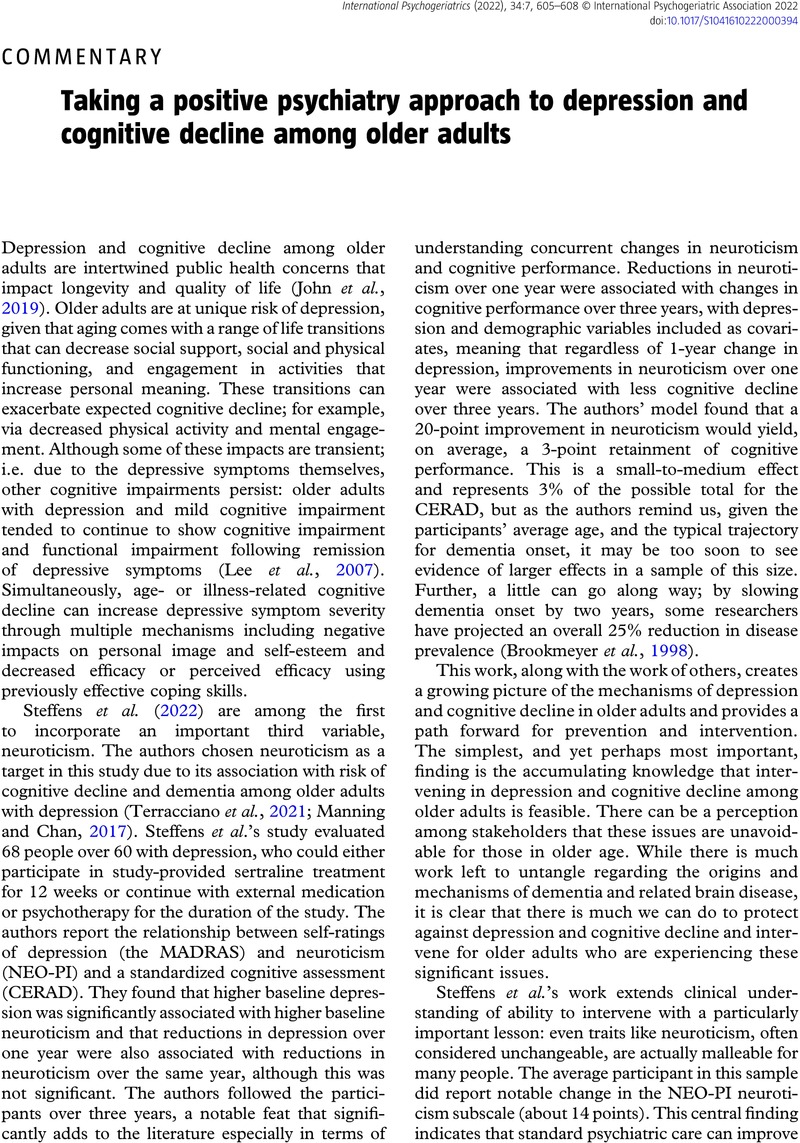Crossref Citations
This article has been cited by the following publications. This list is generated based on data provided by Crossref.
Hopkins, Ella G.
Leman, Patrick J.
Cervin, Matti
Numbers, Katya
Brodaty, Henry
Kochan, Nicole A.
Sachdev, Perminder S.
and
Medvedev, Oleg N.
2023.
Network of mental activities, cognitive function and depression in older men and women.
Journal of Psychiatric Research,
Vol. 162,
Issue. ,
p.
113.
Skosireva, Anna
Gobessi, Linda
Eskes, Gail
and
Cassidy, Keri-Leigh
2025.
Effectiveness of enhanced group cognitive behaviour therapy for older adults (CBT-OA) with depression and anxiety: A replication study.
International Psychogeriatrics,
Vol. 37,
Issue. 2,
p.
100013.



